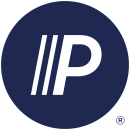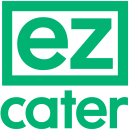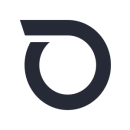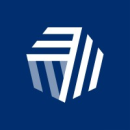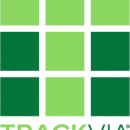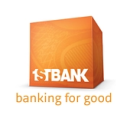When Katie Noble parked her car in Tesla’s visitor’s section, she had one thought: “Do not throw up.”
The former electrical design engineer was enduring a rigorous interview process for an engineering position in the design validation and test group at the electric vehicle company based in Palo Alto. She was suffering from imposter syndrome, fear of the unknown and an upset stomach.
Later, she would realize that applying for the “moonshot” role was the best career decision she ever made.
Today, Noble leads the system integration and test efforts at Outrider, a lean startup working in autonomous, electric trucks. Her advice to women fearing the unknown that comes with career change?
“Don’t,” Noble said. “Career moves often offer the biggest opportunity for personal growth in addition to strides you can make professionally, no matter the outcome. You will likely surprise yourself with how you handle the twist and turns your journey presents along the way.”
Noble, along with 10 other women from Colorado tech, shared their career change stories: the moment they knew they were unhappy in their former roles, the steps they took to find jobs they were truly excited about, and the hardships they faced along the way.
Among the most common tips we heard were “re-write your narrative,” “find a mentor you trust,” and “remember that it’s never too late.”
When Laib was transitioning to a tech career at Church Community Builder, she became her biggest obstacle. Learning how to erase negative thoughts and imposter syndrome are necessary when stepping out of your comfort zone. To overcome self-doubt, Laib said she learned to embrace change and see her past career choices as stepping stones, not mistakes.
When and why did you decide to make a career change?
I can’t remember a time when I didn’t dream of being a teacher. It was my lifelong goal, and for five amazing years after college, I got to realize that dream. Yet here I am today, 10 years later, working as a project manager for a SaaS company, and loving it. Dreams can and do change over the years, and this is exactly what happened to me.
Following the advice of a trusted mentor, I tried a few different entry-level job positions in different fields to explore the best fit for me. I quickly discovered that managing complex, technical projects was the type of professional challenge I enjoy.
Once I had clarity around the kind of work that helps me thrive, I started pursuing job opportunities that would give me the experience and exposure I needed to land a job as a project manager in tech. I completed an online professional certification program through a reputable university for my field. This certification program not only sharpened my skill set, it opened the door to job opportunities and a network of peers who support each other’s careers.
What challenges did you face while establishing yourself in this new career, and how did you overcome those challenges?
It required a lot of boldness to apply to jobs that I felt unqualified for and then explain in job interviews why they should take a chance on me.
I had to fight against my own negative thought that it was too late for a career change. I had to learn how to embrace the change I was making, and stop seeing my past career as a mistake and instead see it as a stepping stone on my journey.
Entering the tech industry as a woman who also didn’t have a technical background had its challenges. At times it felt like I had to fight harder to get where I wanted to go and struggled to be seen and heard. But I’m excited to see all of the changes that are happening in the world of technology and how women are making a huge impact in the software industry. I’m proud to be a part of that.
What advice do you have for other people who are considering making a career change?
Be teachable and open to learning. You can’t change careers without being willing to stay humble and accept coaching and critique from others. Receive all feedback with gratefulness, and you will go far.
Create a solid support system of friends, family or peers who will stand with you during the good times and the bad. Having people to encourage you and help you maintain a positive perspective is incredibly important during the career change process.
Timing is important, and it can make or break the success of your career change. Most of us don’t have the luxury of changing our career whenever we feel like it, and it’s important to seriously consider all of the impacts and plan ahead to try and make the transition as smooth as possible for ourselves, and for the loved ones in our lives.
Be on the lookout for opportunities, but don’t forget that not every opportunity that comes along is the right one for you. It’s OK to be picky about where you invest your time and energy. Make sure you choose healthy places to work, or else you’ll end up learning negative habits that will hurt your new career path.
Don’t be afraid to ask for help, and use your network. So many people are happy to share advice with you, even if they are a friend of a friend. No matter how many times you fail, use each failure as a chance to learn and grow and then keep going.
In her old job as an ad strategist, Baker was used to knowing the ropes. As a software engineer at ezCater, Baker only knows that every day will bring a new and exciting challenge. Breaking down problems and asking questions are how she stays ahead of the learning curve.
When and why did you decide to make a career change?
In 2015, I was a strategist at an ad agency and was often working closely with our engineering team to analyze the performance of our digital products. I found myself curious about the work they did so I started studying coding in my free time. I spent about 8 months studying in my free time and also started putting away as much money as I could to save up for coding school. Once I felt confident I was ready to take the plunge, I applied to coding schools and was offered a scholarship to one in New York City. I quit my job at the ad agency and moved to New York, where I spent the fall at a fully immersive coding bootcamp.
What challenges did you face while establishing yourself in this new career, and how did you overcome those challenges?
A day in the life of a software engineer always involves tackling some challenge that’s totally new. This was uncomfortable at first; I was used to going to work and feeling knowledgeable about most things that came my way. In software development, however, you can sometimes feel stumped for days over one frustrating problem. It’s easy to feel overwhelmed and crushed by how much there is to know and learn in this field.
Over time, however, I’ve learned that this is just part of the job, and the trick is how you manage it. I’ve learned how to break problems down into manageable pieces, how to balance productivity with deeper learning and to not be afraid to ask questions. My team at ezCater stays in constant communication around challenges that are blocking us and breakthroughs we’ve had, so that we can always be learning together, regardless of our experience level.
I also keep a running list of concepts I encounter that are unfamiliar, so that I can circle back and deepen my knowledge on them in a way that suits my personal learning style.
What advice do you have for other people who are considering making a career change?
I’m really happy with my decision and it’s never too late, as long as you’re ready to be humble and work hard. That being said, I’d suggest looking ahead to your next few years and making a realistic plan for your approach that you can stick to, taking into account your lifestyle, family, responsibilities and your ultimate goals. There’s a lot of different ways it can be done. I was in a place in my life where I was able to drop everything and dedicate most of my time and resources to one thing. I think the key is having a plan that works for you and communicating the trade-offs to those who are close to you so that they can support you through it.
Boyle’s career aspiration was to be a therapist. Opening a private practice was energizing, challenging and inspiring, yet she missed one thing: working with a team. She took her empathetic skills as a therapist and decided to apply them to UX design. Now, she straddles both worlds and enjoys working on a team as a UX consultant at World Wide Technology.
When and why did you decide to make a career change?
Five years ago, I opened what I thought would be a private therapy practice. As a therapist, it was the next logical step in my career, and I jumped in. I learned about marketing, product strategy, web design, and all the million little things it takes to help a business grow. I felt energized in a way I never had, but then I hit a creative wall. I realized I missed working with a team. That’s when I decided to take the leap fully into UX design and joined the full-time immersive UX program through General Assembly.
What challenges did you face while establishing yourself in this new career, and how did you overcome those challenges?
The identity shift from therapist to UX designer has been huge. I discovered the challenge wasn’t about breaking away from that identity, it was about expanding it. At heart, I am a helper and healer and rely on the creative process in all areas of my work and life. Pivoting into UX design has helped me see and experience the deepest parts of myself in a whole new way while continuing to do what I’m inspired to, which is helping make people’s everyday lives better.
What advice do you have for other people who are considering making a career change?
Open yourself to the joy and fear of career change and get ready to explore what will likely be a winding road. Open yourself to the learning opportunities that emerge and be willing to rewrite those old stories of what you’re capable of and what’s possible in life. Most of all, open to yourself, what you want and what will support your continued evolution and expansion.
It’s fine to take a step back in career seniority when transitioning to a new industry, but it doesn’t mean you have to begin in the mailroom. When Gender was applying to SaaS roles, her previous experience wasn’t traditionally applicable to open positions, even though she was a senior manager. She rewrote her narrative for interviews and explained how those managerial skills could be of value before landing a role at Gtmhub.
When and why did you decide to make a career change?
Making a move into SaaS sales was my goal to not only widen my skills and become more technically proficient, but also because I knew the industry would have more to offer for the longevity of my career and give me greater exposure to various industries and networks than my previous careers in digital media and advertising.
My first step was researching which companies were in the area that I’d be interested in working for and then attending networking events where they would be in attendance to get a first face-to-face meeting. I’d connect with relevant people on LinkedIn and ask for informational interviews and introductions to their network. I applied for a range of jobs in terms of title and seniority level to have varying conversations to better understand the landscape. Even if qualifications weren’t a match, interviewers were often willing to discuss the market and industry standards or sometimes put me in contact with someone else in the organization to continue my research.
What challenges did you face while establishing yourself in this new career, and how did you overcome those challenges?
I ran into some resistance when interviewing as some companies required previous work in a SaaS role specifically. The last position I held was a senior manager role and now I was being considered for entry-level positions due to my “lack of experience.” I knew there may be some limitations to what I was qualified for, but I also knew that I had a strong skill set that I could offer. I had to reset and change my narrative, making the value that I bring to the table clear and setting a boundary of what positions I was willing to accept.
What advice do you have for other people who are considering making a career change?
Network and research as much as possible to help identify which of your skills are transferable so that you can speak well to those in an interview. Show that you can be flexible and be prepared to demonstrate that as you navigate your new career; you’ll need to learn to adapt to new communication styles, workflows, technologies, etc.
Have a plan that addresses how you will ramp up and gain the new skills that will make you successful in this position. Understand that changing careers may mean taking a step back in terms of responsibility to learn and train for your new role but, ultimately, this is a small sacrifice to work toward achieving something you’ve deemed will be more fulfilling in the long run.
Noble leads the system integration and test efforts at Outrider, ensuring high-quality system releases and software updates. Prior to Outrider, Noble spent more than eight years working as an engineer and later an engineering manager at Tesla. Noble said there were few women in leadership roles at Tesla. From that experience, she learned the necessity of having confidence and not leaning into imposter syndrome.
When and why did you decide to make a career change?
I have made several significant career changes, but one of the most significant was when I completely changed industries. I was working at Agilent (now Keysight), a test and measurement company, as an electrical design engineer. While I was learning a lot at this large, established tech company, there was just something missing for me. It dawned on me at a Maker Faire in the Bay area in 2009 when I saw the Tesla Roadster on display. At that moment, I knew I wanted to work on (and drive!) Teslas. Plus, I wanted to work at this incredibly innovative, fast-paced, and mission-driven company.
Even though it felt like a moon shot, I applied for a role on the electrical engineering team. I landed an interview with the test team and rode out the incredibly intense hiring process. When I parked in visitor parking in Palo Alto for the first time, I told myself, “If you don’t throw up today, consider the day a success.” It was a dream come true when Tesla hired me as an engineer in the design validation and test group in early 2011.
What challenges did you face while establishing yourself in this new career, and how did you overcome those challenges?
There were very few women in leadership positions at the time, so it required that I be confident, advocate for myself and my team, and overcome imposter syndrome. One of the most important success factors was having a great mentor. He gave me honest feedback about my work and how I conducted myself in meetings. I learned how to run extremely efficient meetings, lead by example, make sure people were working on what suited them best, and keep people excited and engaged.
My time at Tesla stretched me professionally and personally. It’s what really prepared me for Outrider, a lean startup in an area of emerging tech focused on autonomous, electric trucks. At Outrider, I’m planning to make another big career move to change job functions. I’m leaning into my organizational and leadership strengths as I transition from test engineering to establishing and growing our program management function.
What advice do you have for other people who are considering making a career change?
So many times our careers are a product of inertia. When you’re considering a career change, you have to be in the driver’s seat. Write down your north star and your “why,” as well as set a realistic and adjustable timeline.
Lastly, if you happen to feel risk-averse or fear the unknown, don’t. Career moves often offer the biggest opportunity for personal growth in addition to the strides you can make professionally, no matter the outcome. You will likely surprise yourself with how you handle the twist and turns your journey presents along the way.
For Calkins, there is no faking it in the tech world. She is transparent with colleagues about her level of tech expertise. When issues arise, they are quick to help and show her solutions that would’ve cost hours if she approached problems alone. Being vulnerable also helps fast-track deeper relationships with her teammates at Cin7.
When and why did you decide to make a career change?
The first change came when I decided to move into the technology space after six formative years in media and entertainment. I loved my experience with the media company but felt limited in how much more I could learn about television and marketing, since my projects were beginning to overlap heavily with our IT group and I was negotiating SaaS deals for the business.
When I eventually made the jump, it was driven mostly by the desire to learn something new and test myself. That shift came in 2018 and I headed to a local company to help launch a software-defined networking product. Talk about whiplash: I went from marketing “Game of Thrones” to teaching myself networking on YouTube at night!
The next and more recent pivot was from corporate to startup. Having started my career in a Fortune 250 company and then moved to another 3,500-person org, I was a bit skeptical about “startup life.” But in the fall of 2019, I started to hit another set of frustrations around organizational pace and felt we were always on the edge of something great, but couldn’t quite move the org fast enough to get there. I was intrigued by the opportunity at Cin7 because the company had an established product but the U.S. office was just opening. I was eager to find a company where I felt I could make an impact and build something great.
When I got the offer to join Cin7, certainly pace and impact ability were driving forces to say “yes,” but truly at the core of my “why” was the opportunity to be the third employee in a U.S. expansion and ensure that diversity was a core embedded value. How often do we get to do that? It is such a privilege.
What challenges did you face while establishing yourself in this new career, and how did you overcome those challenges?
Moving over to a very industry-specific, technical partnerships role presented the challenge to quickly learn an entire product and industry without a formalized training program. I think it is natural to have a bit of doubt when change happens, but the pressure seems somehow greater when the change is one you have chosen.
Moving past the knowledge gap and self-doubt would not have been possible without a fantastic support network. There were many days I would reach out to friends and former colleagues just asking them to remind me that I was qualified for my role, that I would figure it out and that things would be okay. It seems small, but these reassurances helped counteract that rapid change and uncertainty. The other main tool that I have found useful is to be fully transparent with what you don’t know. This not only gives you a chance to learn from those around you, but it also helps set the tone for your relationships. Honesty and vulnerability fast-track relationships and when making a huge shift, those relationships will be far more important than your immediate technical knowledge. Beyond that, Google and YouTube are your friends. I taught myself an entire advanced networking product simply by searching “SD-WAN for Dummies.”
What advice do you have for other people who are considering making a career change?
Just apply! Just ask for the promotion! Just put your name in the hat. Change can only happen when you raise your hand and let people know you are open to it. The worst thing that happens is you end up exactly where you already are. I have talked to so many women who have self-selected out of opportunities because they didn’t think they would get the job, not that they didn’t think they could do it, but they didn’t think others would believe that they could. We will never reach a place of parity if we hold ourselves back.
Cohen felt stagnant in her UX designer role but didn’t know where to pivot. By expressing her feelings to the executive team at TrainingPeaks, they were able to objectively look at her strengths and weaknesses and suggested product management. She credits patience and persistence as two key traits that helped her exceed in her role.
When and why did you decide to make a career change? And what were the key steps you took to make it happen?
I have been a UX designer since 2014 and about a year ago, I was feeling a bit trapped in the role, unsure how to grow and what I really wanted to do as a designer. The more I thought about my role, rather than growing deeper in user experience, I thought I would be more excited by an opportunity to expand my skill set by taking on a complete role shift.
The executive team at TrainingPeaks was extremely supportive during this time and encouraged me to consider a role in product management. I had always identified as a designer, so the shift would be an interesting pivot. Ultimately, thinking about my strengths and goals, product management felt like a move in the right direction and I was ready to sink my teeth into something that would really challenge me. To make this happen, I had to voice how I was feeling to the right people. I met regularly with members of the executive team who helped me find my direction and make this transition a reality.
What challenges did you face while establishing yourself in this new career, and how did you overcome those challenges?
Imposter syndrome was by far the biggest challenge with the career shift. It’s actually funny to dig back into my thoughts in the early days of the transition. I was so hard on myself when no one else was even thinking twice about my capabilities. The more I communicated with co-workers, leaned on mentors and trusted myself, the more I was able to relax into the role and find my groove. Product management is a messy job. I’ve learned that there’s always going to be some doubt in the back of my mind, and I can use that doubt to fuel me to continue to learn, ask questions and work more closely with my team, rather than letting it cripple me.
What advice do you have for other people who are considering making a career change?
Don’t overthink it. In most cases, it is worth it to try something new, even just for the experience of being a beginner again. As adults, it’s easy to get stuck doing what we are good at: go be bad at something. Laugh at yourself when you mess up. It’s not a failure. It’s just an opportunity to learn. You’ll be surprised how quickly you will adapt and how much fun it is to be faced with new challenges.
Each career change should start by defining the “why,” Stevenson said. Writing down the answer can be a grounding exercise. Even when transitioning roles within the same company, like Stevenson did at TrackVia, reminding yourself of the “why” can be the needed motivation to overcome setbacks.
When and why did you decide to make a career change?
I consider product to be people-focused and that’s what really drew me to seek a role in product management. None of my career directions previously felt like the right fit and then I landed at a software division within a company that was over a hundred years old. I watched product managers and saw how they got to interact with all aspects of the company, really driving decisions off of making software that would better people’s lives and make their jobs easier to do.
I worked there in an administrative role and I latched onto a mentor and told them I was interested in product. I said I was looking for any opportunity I could to start getting involved. The first product project that I got to do was one that no one else wanted to put their hands on because it looked like it was going to be a huge beast. I saw a path forward and my boss said to go for it. I believe that particular product is still in use as an integral part of their product suite after 10 years.
What challenges did you face while establishing yourself in this new career, and how did you overcome those challenges?
My challenges were very specific because I was transitioning within the same company. In addition to taking on the challenge of the new role and the project no one wanted to work on, I had to get people to see me as a wearer of many hats and that took time and diligence. I had to take full responsibility and ownership of the role while understanding that it takes time for people to adjust to change. I gently reminded them as the role changed that my responsibilities had also changed.
What advice do you have for other people who are considering making a career change?
Start with defining your “why.” Why do you want to make a change and why do you want this career? Write this down so if you have uncertainties or question whether you’re making the right decision because it will help ground you. Find your path and set your goals and be willing to change again because it’s probably not going to be the only time. Tech is always changing, so flexibility and adaptability with changing tech is what you’re going to use for the foundation of your career.
For Johnson, settling for a career in finance that merely scratched her interest didn’t last long. To find a job in the tech industry, she looked for entry-level jobs. After landing at FRONTSTEPS, she shadowed managers, researched Agile online and took courses through Scrum Alliance to get ahead of the learning curve.
When and why did you decide to make a career change?
I moved to Denver to accept a position as a financial analyst in the technology, media and telecom sector of a large financial institution, but quickly realized it wasn’t the job responsibilities that made me excited about the role, it was the clients I got to work with. Having successfully appeared on ABC’s “Shark Tank” with a product of my own, I always knew my passions lie within an entrepreneurial ecosystem, but I thought analyzing financials for startups would scratch my entrepreneurial itch enough for me to create a long-term career.
As I became increasingly interested in our clients’ product strategies rather than their balance sheets, I knew I belonged on a product team. I began looking for entry-level positions that were willing to take a chance on a quick learner with fitting life experience. FRONTSTEPS stood out to me immediately so I applied for the job. The most crucial step for me was making the official decision that I was going to change my career path and then convincing myself that even though I didn’t have the experience on my resume, I had the passion, drive and soft skills to make someone believe I was a worthy candidate.
What challenges did you face while establishing yourself in this new career, and how did you overcome those challenges?
The fluidity of the product world is entirely shades of grey, so I felt like I was learning a new language. I tried to enter each day with open ears and an open mind to absorb as much as I possibly could from everyone around me. I had no experience in an Agile environment, so I started reading books and online articles and taking courses through Scrum Alliance to become certified in my field. I also shadowed our product manager to get a feel for my new day-to-day routine. The more I learned, the more I felt prepared to fully embrace my new role. Challenges will present themselves throughout your entire career, so it’s important to keep a positive attitude and always look for opportunities to learn and grow.
What advice do you have for other people who are considering making a career change?
Take the leap! If your current job doesn’t make you excited to get out of bed in the morning, it’s probably not a job you can sustain for much longer. Think about what you’re good at, what you’re interested in and find a career field where those two things intersect. That’s where you'll find success and more importantly, happiness. Even if you don’t have the perfect experience on your resume, as long as you can show you’re ready and willing to learn, great experiences await you.
When Gee expressed interest in product management to her then-manager, she gained a mentor. Her manager advocated on her behalf for her transition and supported her during the process. From there, Gee took time to find opportunities to show her value and skillset to a new team at Workiva.
When and why did you decide to make a career change?
I switched from data analytics to product management in my second year at Adobe. I wanted to build things and was in awe of the women running Photoshop. My first manager was a great mentor and he became a powerful advocate for me when I expressed an interest in switching from his group to product management.
In addition to his executive sponsorship, I devised weekly data analytics projects for the Photoshop team to give them an opportunity to know me and my work. Advocating for myself and finding opportunities to show my value were crucial in creating this new career opportunity for myself.
What challenges did you face while establishing yourself in this new career, and how did you overcome those challenges?
The most difficult and exciting part of being a product manager is making a product decision that balances what is best for engineers, designers, existing customers and future customers when those interests conflict. As a new product manager in this situation, I asked clarifying questions to make sure I had gathered all available information and then I explained my decision and my rationale. My goal was to make sure everyone felt heard and that my judgment was fair and sound, even if they didn’t agree with the decision. This strategy built trust within the group of key product stakeholders and has served me well throughout my career at Adobe and Workiva.
What advice do you have for other people who are considering making a career change?
Find advocates within the company. Go beyond one-on-ones and commit to extra projects that introduce you to a team.
App said she leaned into natural curiosities to explore her next career move. Taking free classes, doing research online and testing herself to solve developer programs confirmed her interest in the IT industry. As a self-taught learner, it was easy to transition to an entry-level position in the IT department at FirstBank, even without tech experience.
When and why did you decide to make a career change?
I decided to make a career change in my late 20s. I had been working for a manufacturing company and had become close friends with several members of the IT department and helped out with low-risk maintenance items when I had time. When that company declared bankruptcy, I returned to Colorado and found an entry-level opportunity in the IT department at FirstBank.
What challenges did you face while establishing yourself in this new career, and how did you overcome those challenges?
My degree had been in athletic training and sports medicine and included only one technology class: intro to computers. I had a natural curiosity about how things worked and that probably got me through the first few years as a data and voice technician. It was easy for me to learn once I had specific topics to target, but when you are new, it is very difficult to know what you don’t know. I read everything I could and joined user groups to connect with people who had experience, advice and patience. Insight from those new friends helped me focus my reading on topics most relevant to my job and start to fill the gaps.
What advice do you have for other people who are considering making a career change?
Make sure you choose something so interesting that you would put aside other priorities to learn more about it. It will require personal time to catch up to people who have been doing it longer than you have and if you have a natural interest in it you won’t mind spending your free time learning. If you think you want to be a Java developer, take some free or low-cost classes online, find a small problem you can fix with a Java program and resolve it. If it is right for you, you will be inspired to learn more and code more. If it isn’t for you, try something else, and keep working your day job until you find the right fit. Then make the move.



